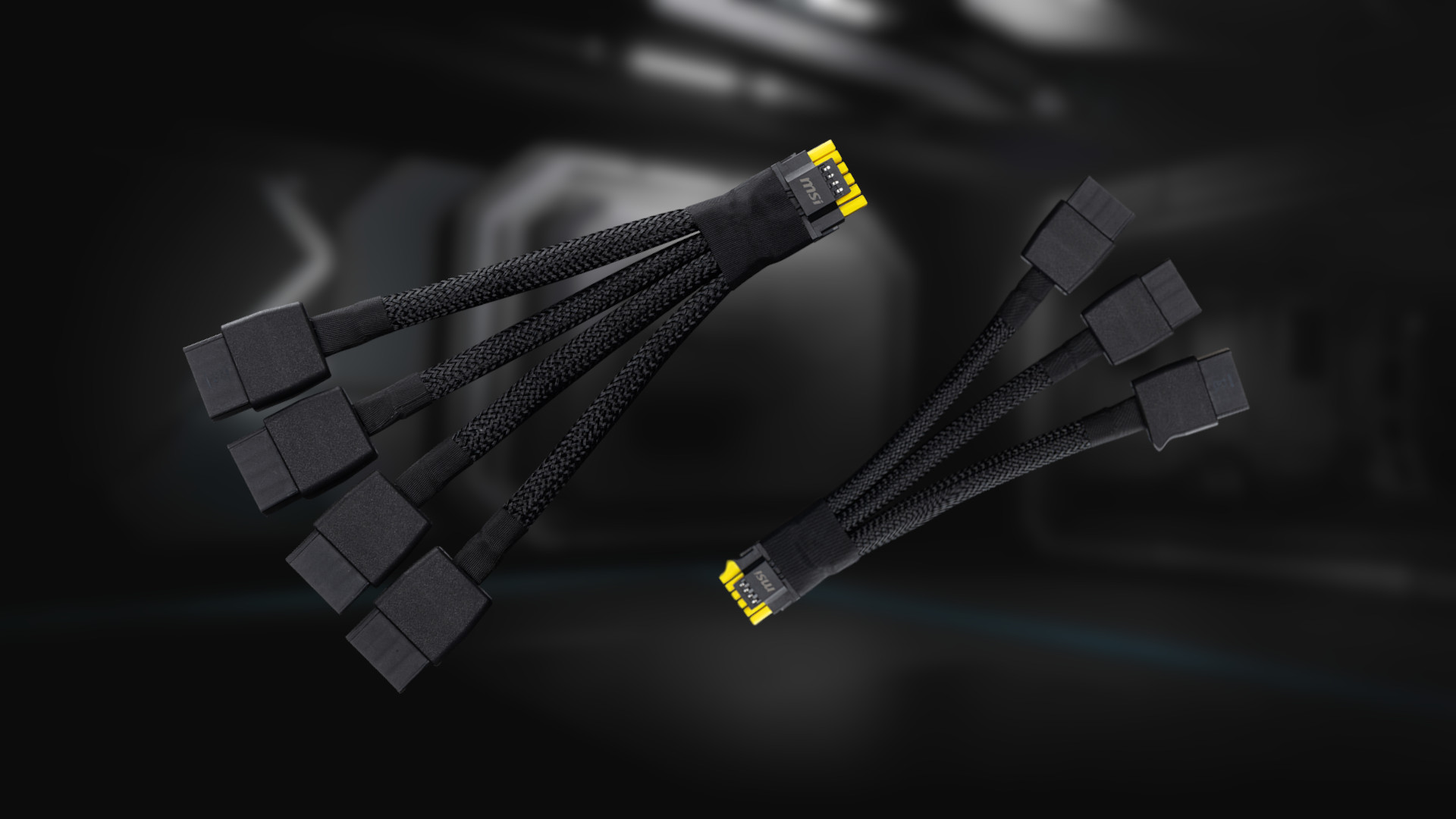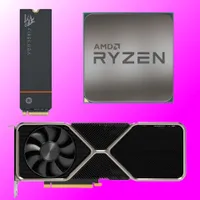If you're worried about your RTX 50-series graphics card suffering another 4090-meltgate, MSI's yellow-tipped adapter cables might just give you peace of mind
Rather than copying another manufacturer's system, MSI is copying its own PSU designs.

Other than its vast price tag, one thing that put off many people buying an RTX 4090 graphics card was the fact that it had a tendency to melt its power cable if not fully inserted. The connector has been revised for the new RTX 50-series cards but MSI has taken a leaf from its own books and incorporated a new adapter cable for its Blackwell GPUs that takes all the guesswork out of wondering if you've clicked things in properly.
The melting connector problem with the RTX 4090 was down to a number of factors: the design of the 12VHPWR socket, the shoddy quality of some adapter cables, and the fact that it wasn't easy to tell if you had the cable fully inserted. With the RTX 5090 using up to 150 W more power than the RTX 4090, concerns of a repeat of meltgate are more than understandable.
Fortunately, there's good news on that front. First of all, all of the new RTX 50-series cards use the revised 12V-2x6 connector, which has adjusted pin lengths to ensure that the GPU can only draw full power if the cable is pushed all the way into the socket. But if that's not enough for you, then you might want to take a nosey at what MSI's offering with its new Blackwell graphics cards (via Videocardz).
Its RTX 5090, RTX 5080, and RTX 5070 Ti cards all come with adapter cables (8-pin sockets to a 12V-2x6 connector) that sport a system that MSI has used before with some of its PSUs. Essentially, the plastic around the 12V-2x6 pins is bright yellow, so if you can see any hint of the colour after you've jammed the cable into the card, you know it's not seated correctly.
The RTX 5070 doesn't get this feature, presumably because MSI deems that its power consumption (250 W TGP) isn't high enough to generate any kind of melty-melty action. On the other hand, the others draw a fair bit more than this, so the yellow plastic is warranted—for reference, the RTX 5070 Ti has a 300 W TGP (total graphics power), the RTX 5080 is 360 W, and the RTX 5090 is a whopping 575 W.
Many of MSI's latest PSUs already sport this feature on the dedicated 12VHPWR/12V-2x6 cable so it's good that it's brought the system across to the adapter cables. Other manufacturers have taken more complex approaches to combating melty-there-goes-$2,000, such as warning lights for an incorrect connection, but I much prefer MSI's 'if you can see yellow, it ain't gonna be mellow' simplicity.
Whether it's enough to allay fears of pulling almost 50 A of current with an RTX 5090, through such a small connector, is another matter entirely.
Keep up to date with the most important stories and the best deals, as picked by the PC Gamer team.
Best CPU for gaming: Top chips from Intel and AMD.
Best gaming motherboard: The right boards.
Best graphics card: Your perfect pixel-pusher awaits.
Best SSD for gaming: Get into the game first.

Nick, gaming, and computers all first met in the early 1980s. After leaving university, he became a physics and IT teacher and started writing about tech in the late 1990s. That resulted in him working with MadOnion to write the help files for 3DMark and PCMark. After a short stint working at Beyond3D.com, Nick joined Futuremark (MadOnion rebranded) full-time, as editor-in-chief for its PC gaming section, YouGamers. After the site shutdown, he became an engineering and computing lecturer for many years, but missed the writing bug. Cue four years at TechSpot.com covering everything and anything to do with tech and PCs. He freely admits to being far too obsessed with GPUs and open-world grindy RPGs, but who isn't these days?


